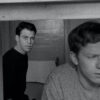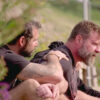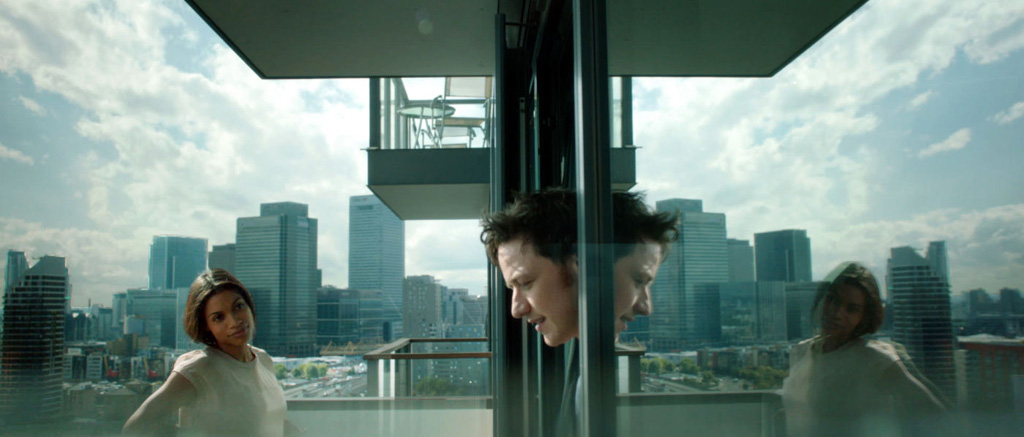It was clear from Danny Boyle’s appearance earlier this week in Los Angeles at the Film Independent sneak preview of “Trance” that he had missed working with John Hodge, the screenwriter of his first four films, or at least the stories he’d tell about his days in medical school.
“[John] would bring stuff to us that was just extraordinary,” Boyle said before launching into a story about the acronyms doctors would use to describe the patients in front of them without them ever knowing it. “They would see very tough things, so they’d have like FLK, which would be funny looking kid, but the most extreme one [John] told me was TFBUNDY, which meant Totally Fucked But Unfortunately Not Dead Yet. If you’re ever unfortunate enough to hear that, you’ll know it’s bad and you should make peace with whoever you need to make peace with.”
Boyle would be ruminating quite a bit on the “totally fucked” in discussing his latest film, which initially suggests it’ll be a heist film with a dapper James McAvoy temporarily foiling the plans of a master thief (Vincent Cassel) and his brusque British crew to steal a rare Rembrandt painting yet sheds its skin quickly and then a few layers of dura mater to become something else entirely once a hypnotherapist (Rosario Dawson) gets inside both their heads to figure out how it all went down.
Like the film, the conversation between Boyle and Elvis Mitchell began with the director talking about the real-life art theft at the Isabella Stewart Gardner Museum in Boston in 1990 where thieves took razorblades to the priceless “The Storm on the Sea of Galilee,” the same Rembrandt seascape that’s in “Trance,” and the only one the artist ever painted – and segued into a surprisingly heavy psychological discussion of why we go to the movies.
“It’s weird because they say films are escapism and yet there are no films ever made on holiday or virtually none,” Boyle said, after starting in on his use of metropolises for settings. “We live in cities and we want to watch nightmares about cities that we live in.”
“I’m a city boy, I don’t like the countryside. I distrust it,” the Manchester-born filmmaker continued. “But I think there’s a loneliness in cities as well, which is so dynamic for us. These huge chromey places where we all come and gather together and then there’s incredible loneliness in them as well.
“You can use it for wonderful stories like thrillers or noir or crime – you can create a bubble. There’s a bubble in this film. There’s nobody outside that bubble. Like where are relatives [of the characters] or the police? You just don’t think [about that]. It’s not the point. These characters create a bubble and it’s the anonymity of the city that it gives [it to them]. It really helps me make films.”
After Mitchell jokingly remarked, “I’ve never had anyone give so much of themselves on the stage before” after hearing of the director’s aversion to the countryside, he made it a point of the evening to discuss Boyle’s singular ability to combine “intimacy and brutality,” a compliment which Boyle took in stride.
“I think violence can be cathartic in film, on stage,” said Boyle. “I think we go to these places to see these actors, these strange beings act out these things for us. Sometimes we would love to be there and sometimes we really wouldn’t like to be there and that is catharsis working on you all the time. It’s pulling it out of you, like ectoplasm being pulled out of you and it’s timeless.”
Sometimes, it’s a little too transporting, prompting Boyle to recall an early screening of “127 Hours” at Pixar.
“We arrived for the end of it, for the Q & A, there was an ambulance outside and people being carried out who’d fainted,” Boyle said. “There were people lying down on the steps of Pixar and this one woman, I was looking at her and she woke up and she recognized me and she said, “Oh, good film.”




